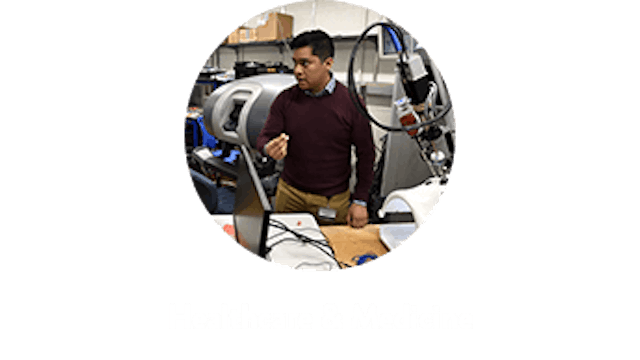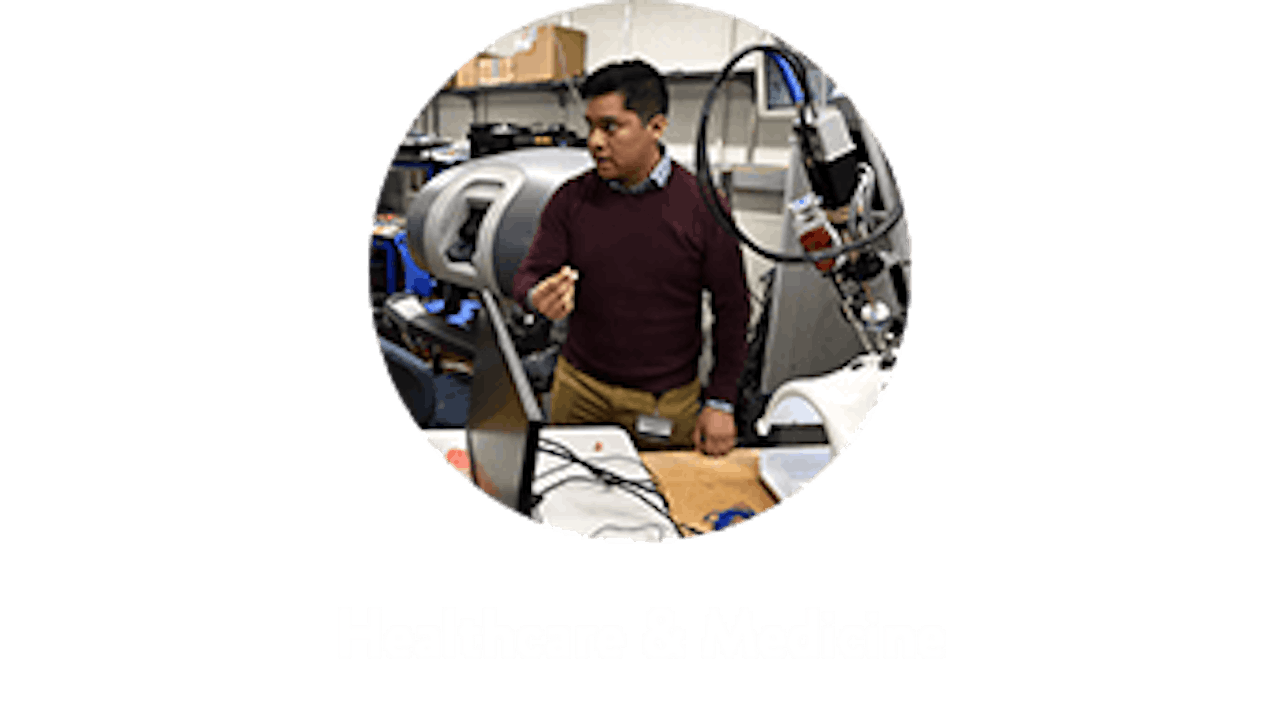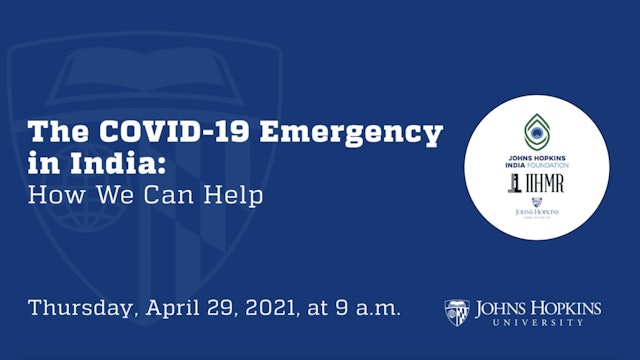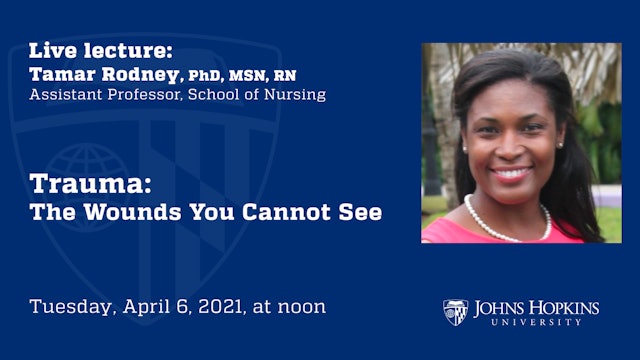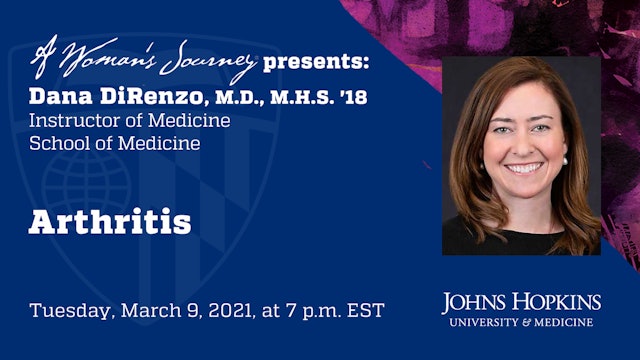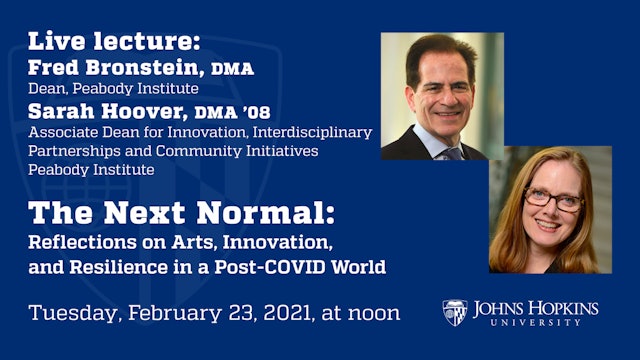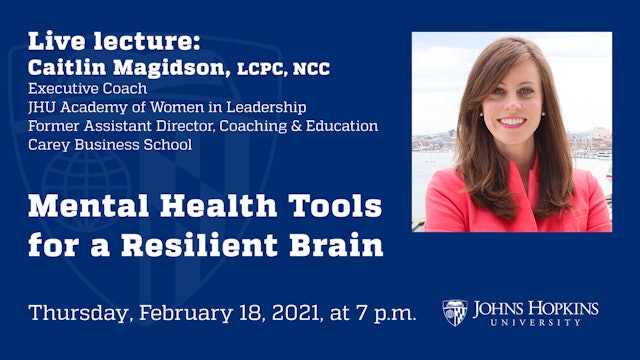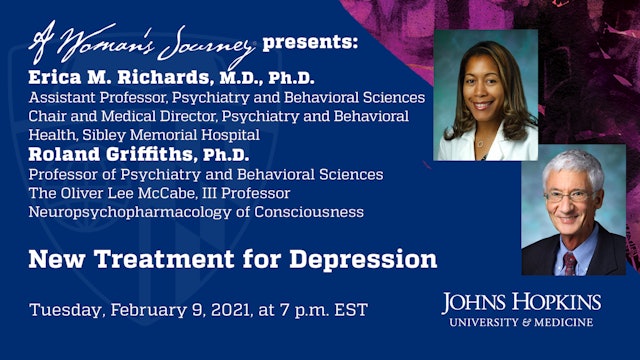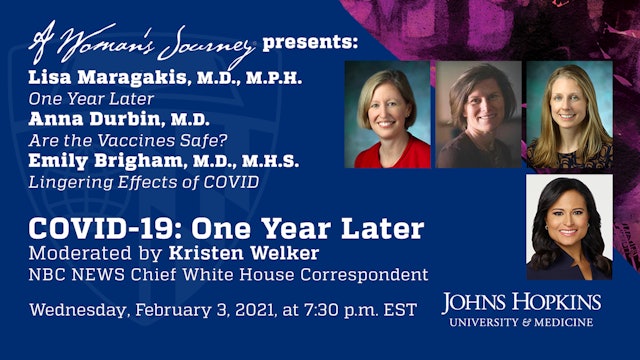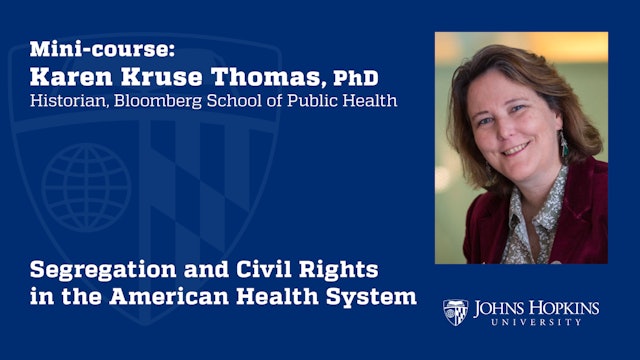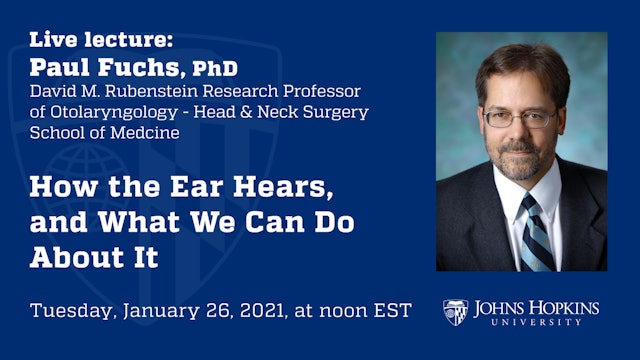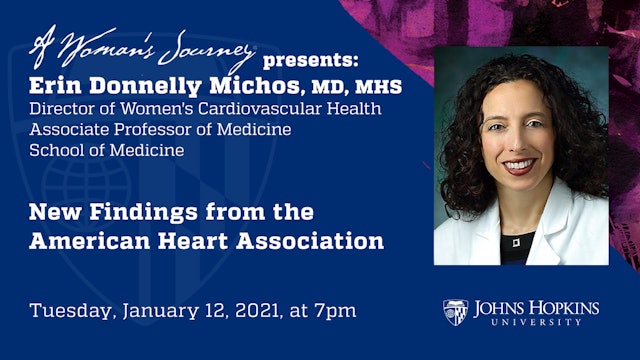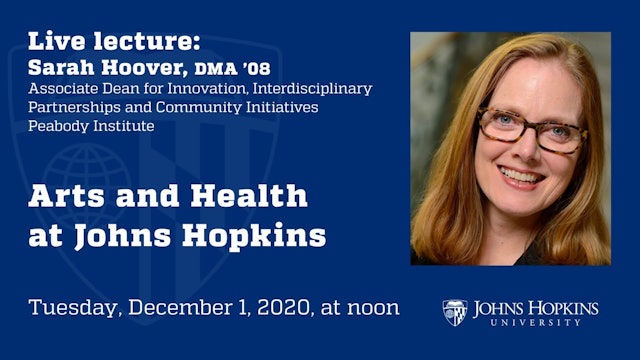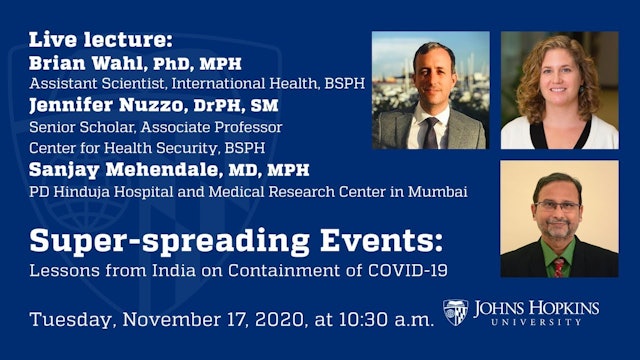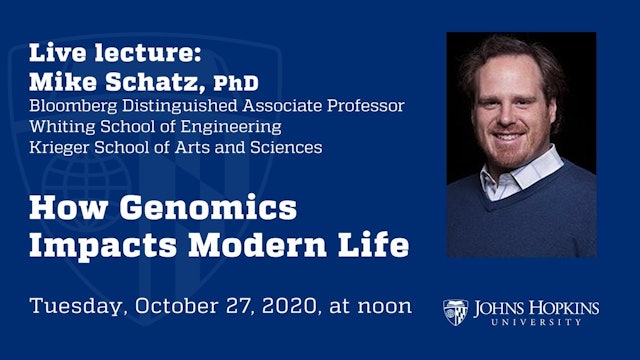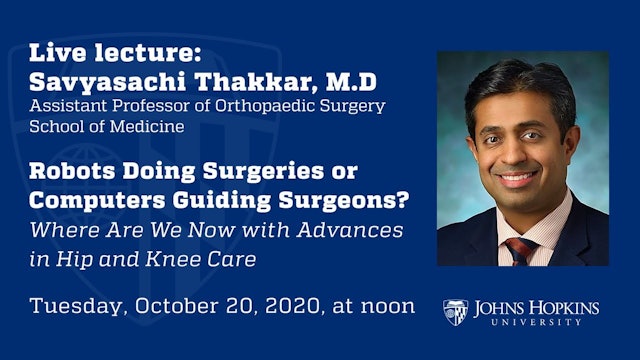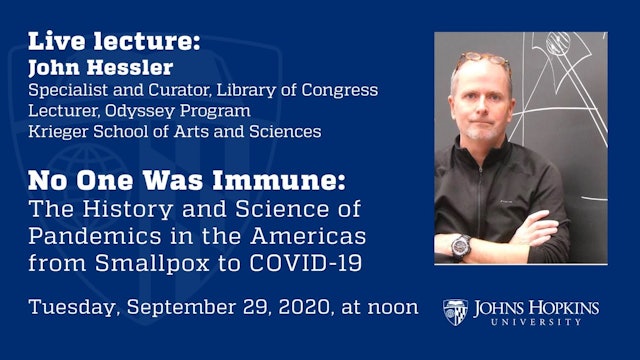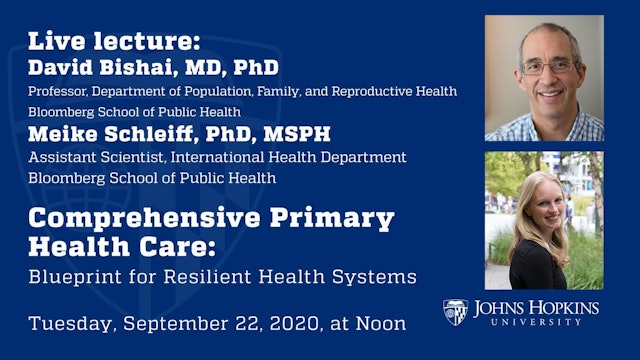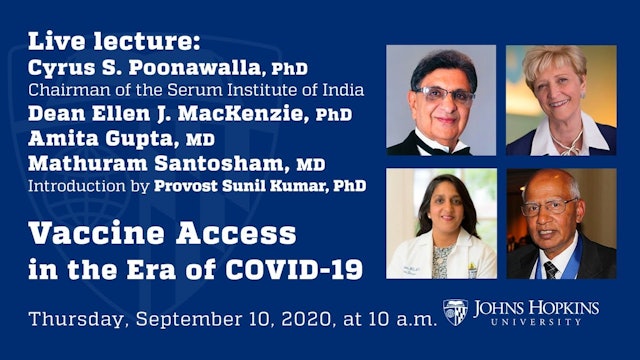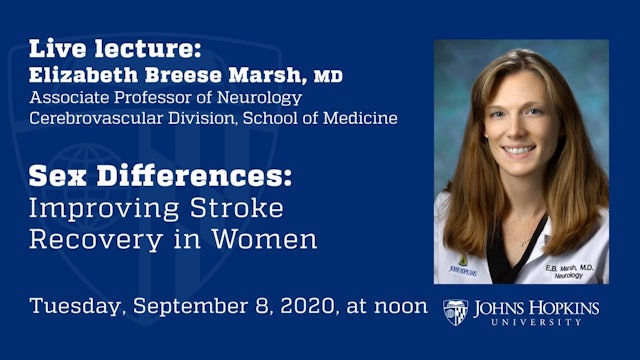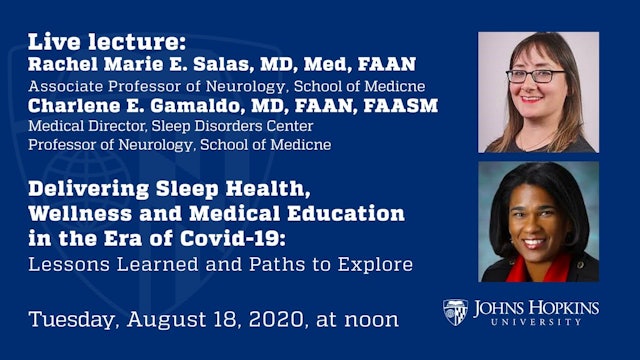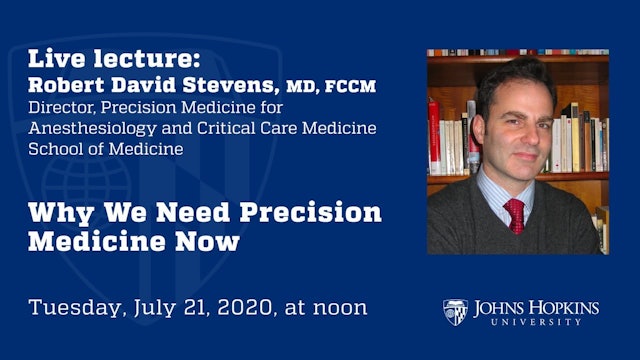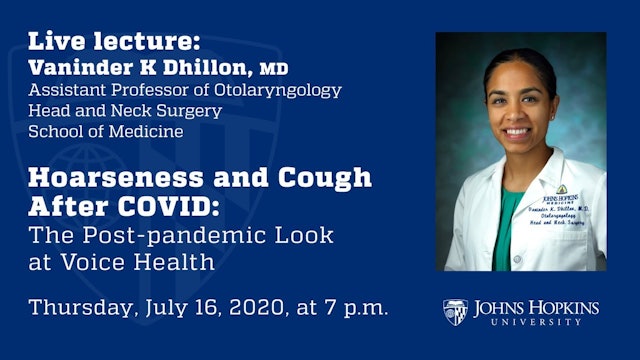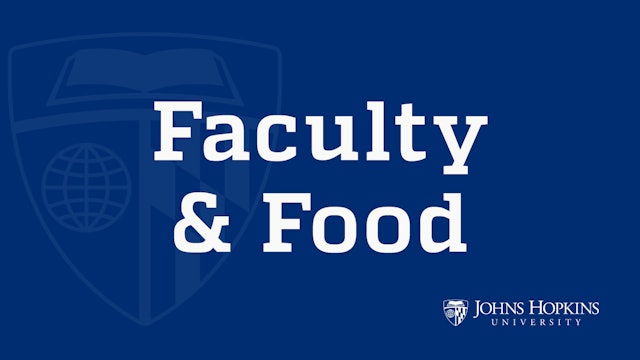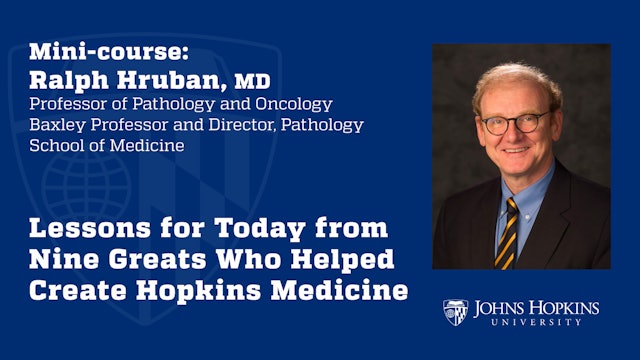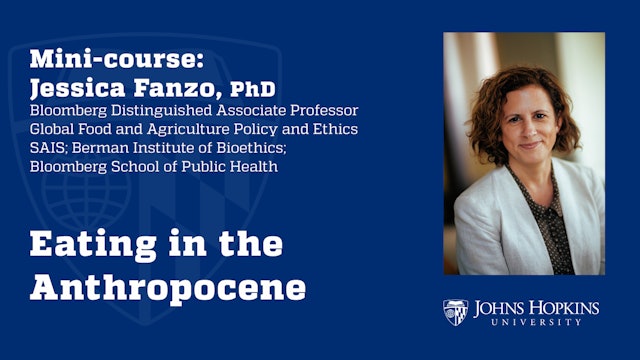Healthcare & Medicine
-
The COVID-19 Crisis in India
In the past weeks, India’s COVID-19 crisis has taken a dramatic turn. India has reported more than 17.6 million cases since the beginning of the pandemic and more than 350,000 new cases early this week. Deaths are on the rise and, experts fear that the numbers might underrepresent the real number...
-
Trauma: The Wounds You Cannot See
How can we process traumatic events like the COVID-19 pandemic? What will be the lasting impact and how do we identify it? Join this lecture with School of Nursing Assistant Professor Tamar Rodney to explore how the ongoing presence of the COVID-19 pandemic could manifest as post-traumatic stress...
-
A Woman's Journey: Arthritis
Did you know that women are more likely than men to have the two common forms of arthritis? Rheumatologist Dana DiRenzo reviews the various types of arthritis, how arthritis can be diagnosed, its symptoms and risk factors, and what can be done to minimize and treat the pain. To learn more, visit ...
-
The Next Normal: Reflections on Arts Innovation and Resilience Post-COVID
The performing arts industry has been thoroughly upended by the COVID-19 pandemic, with venues shut down, performances canceled, and artists out of work. A Brookings Institution report issued last summer estimated the damage in the fine and performing arts at almost 1.4 million jobs and $42.5 bil...
-
Mental Health Tools for a Resilient Brain
You can’t see your brain, and yet your mental health impacts you everyday. How do you create a more resilient brain through life transitions, loss, stress, and change? Join us for this talk with Counselor and Career Coach Caitlin Magidson to explore what mental health is, cognitive strategies to ...
-
A Woman's Journey: New Treatment for Depression
There's good news for people who suffer with severe treatment-resistant depression. Esketamine is a groundbreaking therapy that may provide relief from major depression within hours. Join this livestream to hear psychiatrist Erica Richards, chair and medical director of the Department of Psychiat...
-
A Woman's Journey: COVID One Year Later
Recently, Johns Hopkins Medicine’s A Woman’s Journey conducted a national survey of more than 25,000 adults to identify the three COVID-19 issues that are of greatest concern and interest to consumers. The results — public health guidelines, vaccine safety and lingering COVID-19 effects — will be...
-
Segregation and Civil Rights in the American Health System
2 items
In academic histories and popular films and novels, the US civil rights movement centers on bus boycotts, voting booths, water fountains, classrooms, and courtrooms. But did protesters ever picket doctor's offices, hospitals, medical schools, or public health clinics? Join Karen Kruse Thomas from...
-
How the Ear Hears, and What We Can Do About It
Ever wondered exactly how your ears hear? Does more time using earbuds on your Zoom calls have you worried about hearing loss? Advances in cellular biology and genetics have helped define the molecular mechanisms by which sound is transduced and transmitted to the brain. With this expanding knowl...
-
A Woman's Journey: New Findings from the American Heart Association
Preventive cardiologist and women’s heart health expert, Dr. Erin Michos, reviews new findings released at the most recent annual American Heart Association Scientific Sessions.
Erin D. Michos, MD, MHS '07 is an Associate Professor of Medicine within the Division of Cardiology at Johns Hopkins S...
-
Arts and Health at Johns Hopkins
What might healing look like if the arts were thoroughly integrated into the healthcare environment? What would Johns Hopkins University and Health Systems look like if precision medicine and state-of-the-art care included (1) the arts in training, professional development, and support for the we...
-
Super-spreading Events: Lessons from India on Containment of COVID-19
As global COVID-19 caseloads accelerate and winter approaches in the Northern Hemisphere, a study in India may have delivered some key insights into the disease’s transmission. The study, co-authored by Hopkins scientist Brian Wahl, leveraged India’s extensive contact tracing to conduct the world...
-
How Genomics Impacts Modern Life
Join Mike Schatz as he provides an overview of ancestry, explores the role of genomics in the identification and treatment of disease, explains agricultural genetics and the highlights impact of genomics on COVID19 research. To learn more, visit jhu.edu/hopkinsathome
-
Robots Doing Surgeries or Computers Guiding Surgeons Advances
There are several advances in the non-operative and operative care of patients with hip and knee problems. Technical and technological innovations have provided a cutting-edge to patients and providers alike. Savyasachi “Savya” Thakkar, M.D., Assistant Professor of Orthopaedic Surgery, leads a di...
-
No One Was Immune: The History and Science of Pandemics in the Americas
Join John Hessler for a lecture focused on the genomics and geospatial transmission of infectious disease, concentrating on the VARV Variola virus (Smallpox), from which we have the oldest complete genome sequence, on the science of ancient DNA sequencing, and on the complexities of mapping the g...
-
Comprehensive Primary Health Care: Blueprint for Resilient Health Systems
Do you know the difference between "comprehensive primary health care" and "primary care?" Join Dr. David Bishai, professor in the Population, Family and Reproductive Health Department at Bloomberg School of Public Health, and Dr. Meike Schleiff, assistant scientist in the Health Systems program,...
-
Vaccine Access in the Era of COVID-19 with the Johns Hopkins India Institute
According to the World Health Organization, immunization currently prevents 2-3 million deaths a year and is one of the greatest successful and cost-effective public health interventions. With the continued spread of COVID-19, there is heightened attention on the need for an effective vaccine as ...
-
Sex Differences: Improving Stroke Recovery in Women
We’ve always known that there are important differences between women and men. But this can become particularly important when thinking about health risk factors and recovery after a life altering event like a stroke. In this livestream, Associate Professor of Neurology Elizabeth Marsh, MD will d...
-
Delivering Sleep Health, Wellness and Medical Education in the Era of Covid-19
Join the discussion with Charlene Gamaldo, MD and Rachel Salas, MD about the importance of sleep, especially in the current COVID-19 climate. Tune in to learn about the culprits of disturbed sleep, signs and symptoms of common sleep disorders, and new strategies you can employ now to improve slee...
-
Why We Need Precision Medicine Now
The current pandemic has challenged many assumptions on the health of populations. Join Robert Davis Stevens, Director of Precision Medicine for Anesthesiology and Critical Care Medicine, to discuss Precision Medicine as a disruptive framework which focuses on the specific characteristics and nee...
-
Hoarseness and Cough after COVID: The Post-Pandemic Look at Voice Health
COVID-19 changed the way in which we perceive symptoms such as sore throat, cough, and hoarseness. While these symptoms are associated with the coronavirus, they are also symptoms that many have had before and may continue to experience after the worst of the pandemic. Vaninder K. Dhillon -- an o...
-
Lessons for Today from Nine Greats Who Helped Create Hopkins Medicine
4 items
The founding of the Johns Hopkins University School of Medicine fundamentally changed medicine in America. In the blink of an eye, medicine was transformed from a trade practiced by poorly educated craftsmen, to a science practiced by highly educated physicians. While this transformation may seem...
-
Eating in the Anthropocene
6 items
“You are what you eat” is a phrase familiar to many but what do you really know about food systems and diets? This course examines the complex interactions between food systems, diets, and the environment, and the political, social, and ethical issues to achieve both human and planetary health. W...

